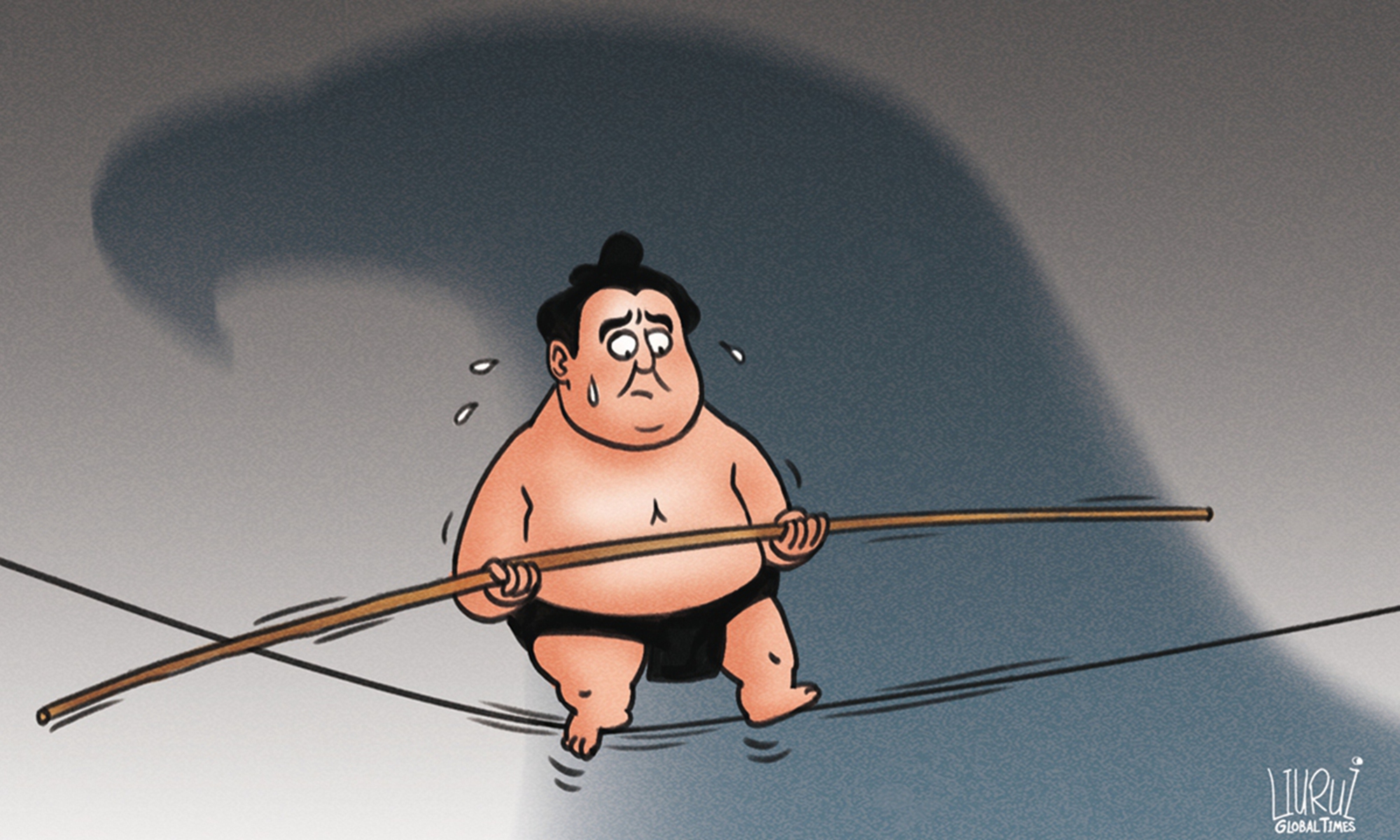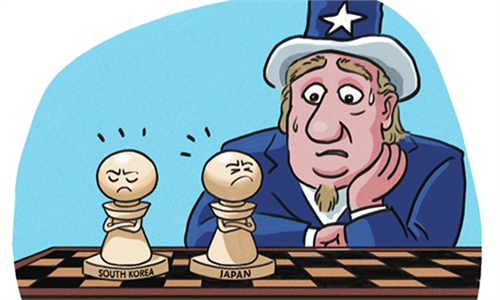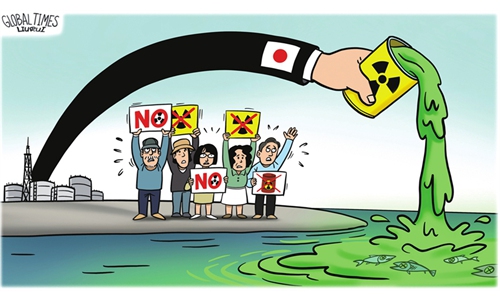Troublemaker Japan should think twice before jeopardising peace in Taiwan Straits

Illustration: Liu Rui/GT
Some Taiwan media outlets are hyping the news - for the first time, Taiwan experts will join US-Japan war games simulating cross-Straits conflict, scheduled in mid-July in Tokyo, Japan, at the invitation of the think tank Japan Forum for Strategic Studies. The war game comes right after a visit of a group of Japanese lawmakers from three opposition parties to Taiwan island earlier this week, who also met with Taiwan regional leader Tsai Ing-wen on Monday. Once again, troublemaker Japan is jeopardising peace in Taiwan Straits by showing destructive support toward the current Taiwan authorities.The two events closely follow a recent Taiwan official's Japan visit. Cheng Wen-tsan, "vice premier" of Taiwan island met senior politicians from Japan's ruling LDP, at the end of June, in the first visit to the country by a sitting Taiwan "vice-premier" in 29 years. Despite China's repeated and clear declaration that the "Taiwan question" is China's internal affair, both ruling party and opposition in Japan, has not ceased their support toward Taiwan independence secessionist forces, which is blatant provocation against the one-China principle that Japan promised to uphold when establishing diplomatic relations with China. And the last war game simulation on Taiwan Straits can be viewed as a diplomatic show of Japan, by ganging up with the US, to internationalize Taiwan question and demonize China.
The true purpose of Japan stirring up Taiwan region is to accelerate the amendment of Japan's pacifist constitution and lay the foundation for the country's defense overhaul in the future. So it is portraying a tense neighboring environment as an excuse. That's why Japan has been hyping that "a Taiwan contingency is a contingency for Japan."
Now Japan has an "opportunity" - NATO is discussing about setting up a liaison office in Tokyo. NATO seeks to expand to Asia Pacific in order to contain China, while Japan seeks to amend its constitution. The two have overlapping goals. It means Japan believes it now has more leverage to stir up troubles in the Taiwan Straits.
But Japan needs to remember three points. First, Japan is overestimating its own capabilities. Second, the attempt to use external forces to pressure China is highly uncertain. External forces have their own national interests and strategic assessments, and it is impossible for them to completely decouple China. Third, Japan's provocation on Taiwan question may ultimately backfire. Japan's hope to contain China may lead to disappointment and ultimately despair.
Japan's experience in World War II also confirms the truth that aggressors will eventually end up hurting itself. Taiwan question is a matter concerns China's sovereignty and territorial integrity. The Chinese people are firm in their resolve and have a deep commitment to safeguarding China's sovereignty and territorial integrity, and the fundamental interests of the Chinese nation, and this resolve and commitment will frustrate any attempt to divide the country. Therefore, Japan's continuous provocation of China's bottom line will not only worsen China-Japan relations but also greatly limit Japan's room for future political and diplomatic manoeuvres, damage Japan's economic interests, and even jeopardize the well-being of its people, causing irreversible and significant harm. He who repeatedly commits wrongdoing will come to no good end. The painful lesson of Japan in the history is not outdated.
The author is director of the Institute of Northeast Asian Studies at the Heilongjiang Provincial Academy of Social Sciences. opinion@globaltimes.com.cn


